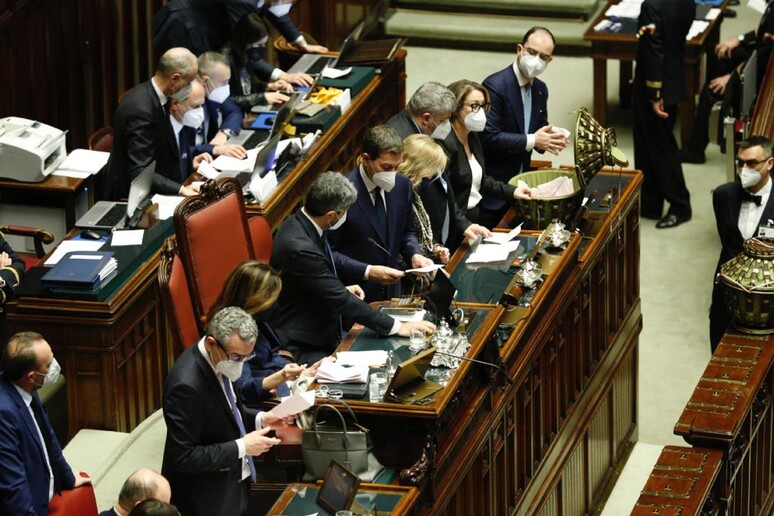The outcome of Thursday's fourth
ballot in the Italian presidential election was inconclusive.
It became arithmetically impossible for the majority of the
grand electors needed to vote in a new head of State to be
reached well before the end of the count.
Many votes went to President Sergio Mattarella, whose seven-year
term is coming to an end, and to magistrate Nino Di Matteo.
Mattarella got over 160 votes, up from 125 in the third ballot,
while Di Matteo polled in the mid-50s.
The fourth vote had been expected to have the same outcome as
the first three, even though the majority needed had dropped
from two-thirds to a simple majority, because the political
parties have so far failed to agree on a successor to
Mattarella.
A fifth ballot of lawmakers from both houses of parliament and
regional representatives will now take place on Friday, with the
magic number set at 505.
On Thursday the centre-left Democratic Party (PD), the 5-Star
Movement (M5S) and the left-wing LeU group told their grand
electors to cast blank papers, while the centre right abstained.
On Tuesday the parties of the centre right - Matteo Salvini's
League, Silvio Berlusconi's Forza Italia (FI) and the
opposition, right-wing Brothers of Italy (FdI) party - proposed
three possible candidates: former education minister and
ex-Milan mayor Letizia Moratti, former prosecutor Carlo Nordio
and former Senate Speaker and philosopher Marcello Pera.
PD leader Enrico Letta politely said no to those names.
There was speculation that the centre right actually wanted to
push for Senate Speaker Elisabetta Casellati to become Italy's
first woman president.
The PD, however, reportedly convinced Salvini's group not to
vote for a centre-right candidate, rather than seeking a
consensus figure, on the grounds that this would rock the
stability of the broad majority supporting Premier Mario
Draghi's executive.
Salvini has called on the centre left to propose someone saying
it was not up to him to come up with the name of a left-winger.
Some commentators have said the longer the parties fail to agree
on a consensus figure, the more likely it is that Draghi will
end up becoming head of State, even though many want him to stay
on as premier.
Salvini said Thursday that Draghi is "precious where he is".
If the former ECB chief is elected head of State, it could lead
to early elections.
This is because many find it hard to imagine the broad spectrum
of parties supporting his national unity executive agreeing to
get behind another figure.
There has even been talk of Mattarella being re-elected,
something that has only happened once, with his predecessor
Giorgio Napolitano.
Under this hypothesis, Mattarella, 80, would stay on for a few
more years, not another whole seven year-term, until after the
end of the current parliamentary term in 2023 and the next
general election.
At that point, it might be easier for parliament to choose a
successor, possibly Draghi.
"I don't think things will be wrapped up today," said ex-premier
Matteo Renzi, the leader of the small, centrist IV party.
"I think they will be wrapped up tomorrow".
ALL RIGHTS RESERVED © Copyright ANSA











